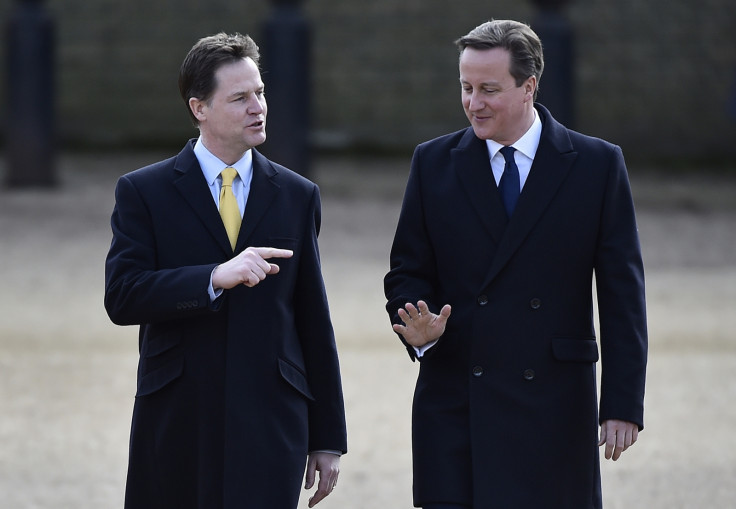Lib Dems' Nick Clegg rules out coalition if Tories go ahead with 'downright unfair' welfare cuts

Liberal Democrat leader Nick Clegg has insisted that he will enter into another coalition with the Conservatives if they insist on going ahead with a proposed £12bn cut in welfare.
The Lib Dems have been in coalition with David Cameron's Tories since the May 2010 election in which there was no outright winner. Although the Conservatives have suggested they will need to make the swingeing cuts to the welfare budget, they have declined to say which services would be hit.
Chancellor George Osborne has instead said that a decision on where the axe will fall would come in an post-7 May election spending review.
In an interview with BBC Newsnight's Evan Davis, Clegg said the Conservative approach was "downright unfair".
The Lib Dems have said they would cut less than the Tories and borrow less than Labour as part of their plan to eliminate the deficit by 2017-18.
Clegg said would not recommend a coalition with the Conservatives if they "insist on a plan which is... a remarkable departure from what we've done in this coalition where we've actually asked those with the broadest shoulders to pay more through the tax system to balance the books".
Labour 'not serious about balancing the books'
He added, however, that he "could not countenance" recommending to his party they join a coalition with "a Labour Party that's not serious about balancing the books".
Clegg said he was "no slouch" when it comes to welfare savings, having set out plans to cut £3bn from the budget.
But he criticised the Conservatives' planned time scale and said the Tories were "asking the poorest to make those additional sacrifices at the same time as saying to the richest that they do not need to pay an extra penny to balance the books - that's downright unfair".
The Lib Dem leader also said the coalition government had not been "right wing", pointing to measures including raising the income tax threshold and the pupil premium to support poorer schoolchildren.
© Copyright IBTimes 2025. All rights reserved.





















